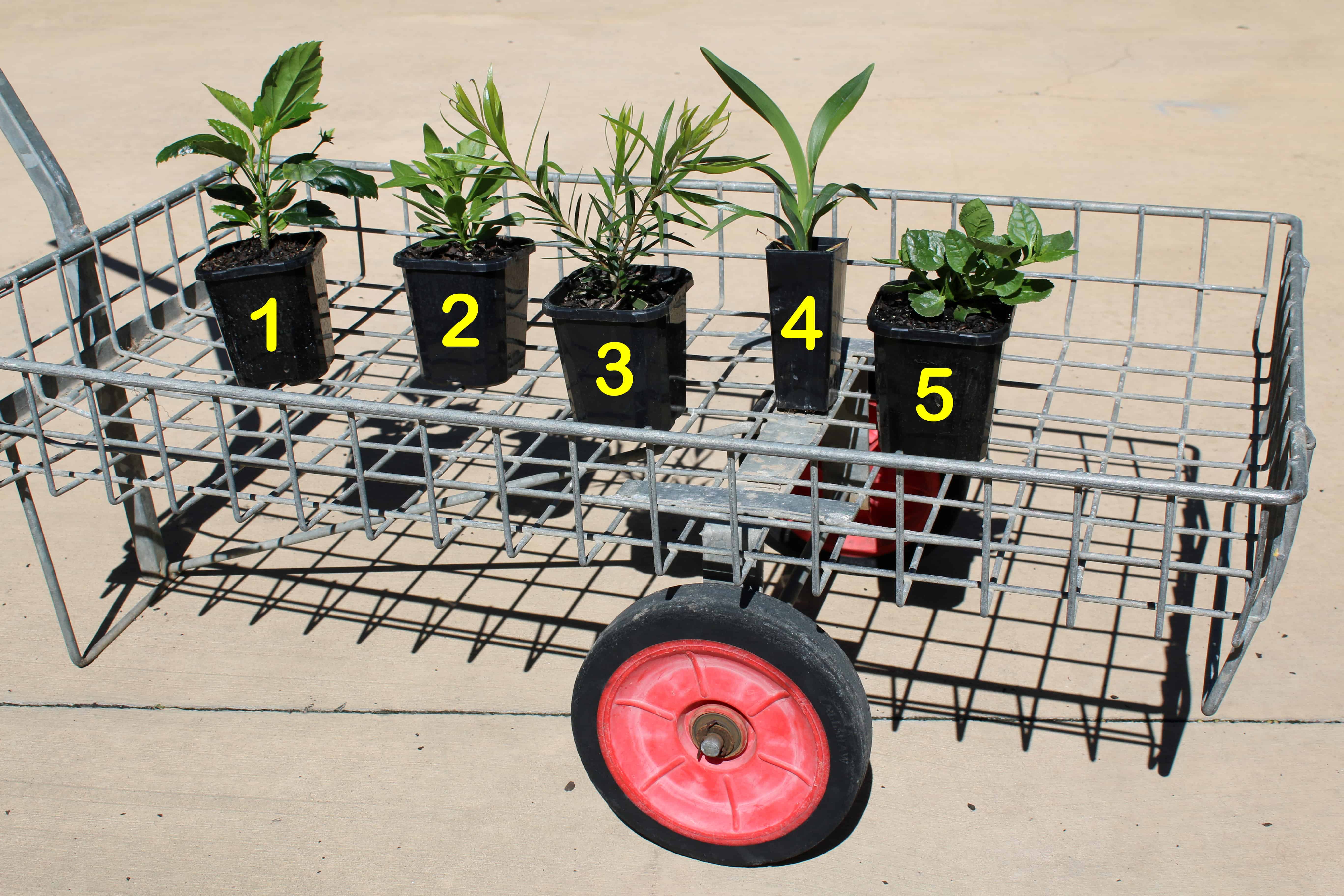Take your garden from gloomy to glorious and learn the secrets of perfect planting. We’ll even get you started with five plants to fill your trolley at Ipswich City Council nurseries.

1. Red Hibiscus (Hibiscus rosa-sinensis): This shrub has glossy green leaves and thrives in moist, well-drained soil with plenty of sun. It’s ideal for hedges and screens, growing to about 1.5m tall, and blooms with bright red flowers in Spring.
2. African Daisy (Osteospermum): A small perennial shrub with masses of purple, mauve and white flowers, this drought tolerant plant is perfect for pots and small gardens. It grows best in full sun, to a max height of about 50cm.
3. Prolific (Melaleuca viminalis): As the name suggests, this small tree is a fast grower. It features weeping foliage and produces bright red flowers in the warmer months. It’s also very hardy, tolerating sandy and clay soils.
4. Flax Lilly (Dianella brevipedunculata): This low-maintenance tufted grass plant is native to South-East Queensland. It blooms with small purple-blue flowers in Spring and prefers full sun or part shade and well-drained soil.
5. Hop Goodenia (Goodenia ovata prostrate): A hardy, fast growing plant with glossy dark foliage and bright yellow flowers, this native suits most soils and is drought and frost tolerant. Its dense ground cover also helps to keep weeds away.
PERFECT PLANTING WITH PETER
- Know your yard. Pick plants that suit your garden and your land. A bottlebrush probably won’t work in a townhouse courtyard, but it will thrive on a bigger block.
- Invest in some good quality garden soil for planting in the ground, and potting mix for pots.
- If you’re planting on clay build up a mound of garden soil to support root growth and development. Roots tend to grow in circles when planted in clay soil.
- Spread mulch around the root zone of the plant, out to the drip line, to help retain soil moisture. Add about four inches of mulch to the top of the soil but keep the trunk area clear to avoid trunk rot.
- Water every day for a week after planting and ease off over the following six weeks. Use a liquid fertiliser like Seasol to encourage growth and root development.
- Once the plants are established hit them with chicken manure to maintain soil structure, boost nitrogen levels and encourage earthworm activity.
How to go green and claim your free plants
More than 500,000 plants have been handed out as part of Ipswich City Council’s Free Plant Program. Plants are available at council nurseries at Queens Park and Goodna, while the mobile nursery brings plants to the people.
You can claim six free plants per year upon presentation of your current rates notice – or your landlord’s rates notice if you rent – a Defence Housing Voucher, or Department of Housing and Public Works card and proof of residency. If you own a home that’s less than a year old you can claim a one-off allocation of 25 plants on top of the annual six.
The Queens Park Nursery is open Wednesday and Thursday from 7.30am to 12pm and 12.30pm to 3pm and Saturday from 8am to 12pm. Goodna Nursery is open Wednesday from 8am to 12pm.


Flax Lilly (Dianella brevipedunculata) is not exactly pet friendly
WHAT TO PLANT IN IPSWICH GARDENS THIS SPRING
Be nice if you also indicate whether pet friendly and also any contra-indications for young children interactivity
Chook manure usually has the highest nutrient content because of the intensive nature of the diet. Laying hens are often fed calcium supplements, to strengthen the eggshells, and that makes their manure particularly good as a clay-breaker. Remember that farm gate chook manure is often mixed with bedding materials, such as sawdust, which greatly dilutes nutrient levels. Chook manure always has a higher nitrogen level, making it great for fertilising lawns and for use in the vegie garden. But it also has a higher phosphorous level, so using it long term on native plants, such as banksias, grevilleas and waratahs, can kill them.
4.5